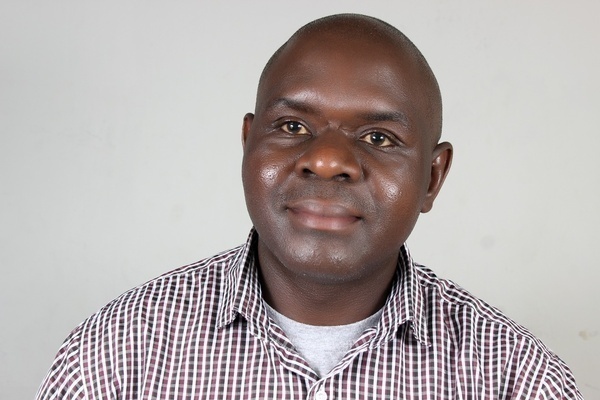About Us
Kistrech International Poetry Festival in Kenya is currently the most popular and largest literary event in Africa. Founded in 2013 by Dr. Christopher Okemwa, its aim is to bring local and international poets together on one platform every year. It promotes poetry, art and cultural exchanges between local and foreign artists. Spoken-word, rap, song, poetry, oral poetry and mashairi (Swahili poetry), are featured. Students and upcoming poets, especially those from Africa, have benefitted a lot from this festival. They get the opportunity to interact and read their poetry alongside international poets and as a result several of them have had their poems published by reputed magazines and literary journals. Others have published their poems in book form with reputed publishers. Through the festival, some local poets have received invitations to participate at international poetry festivals. Several student-poets have landed scholarships to study abroad, courtesy of the Kistrech Poetry Festival. MA & PhD students of literature in Kenyan Universities get the opportunity to learn of foreign authors and their literary works that they didn’t know existed. Academic papers on poetry and related genres that are presented by guest poets, alongside the festival’s activities, benefit the post-graduate students in Kenya.
Rural Town of Kisii
Held in the small rural town of Kisii in Western Kenya, the Kistrech International Poetry Festival is aimed at providing the visiting poets with an indigenous taste of experience they will not forget. The rural town is occupied largely by Abagusii people whose culture is rich, comprising of traditional dances, oral poetry, cultural norms, beliefs and practices that are unique. Kisii University, situated in the heart of Kisii town, provides a conducive atmosphere for the festival and enables visiting poets to interact with students and lecturers of literature, culture, history, theatre and music. The event is not only held at Kisii University but is taken to the surrounding local Secondary Schools, Primary Schools, Kenyatta University, University of Nairobi and Goethe-institute in Nairobi. One full day is spent in the village to enable visiting poets to interact with the local people, see how they live, share in their indigenous foods and brews, and learn the culture and tradition of the local people. Visiting poets are sure to watch the famous African story-telling art and the griots who, not only entertain, but also educate and pass the cultural values of our people. On the other hand, the guest-poets, especially those from European countries, benefit from the oral poetry and emeino (Abagusii chants & classical poetry), listen and interact with Mashairi (song-like, heavily-rhythmic poetry of the East African people), and participate in the art of story-telling by the village griots. By visiting schools, they also learn our system of education. By interacting with the Kenyan students, Kenyan poets, village people, etc. they get raw materials for their poetry.Maasai Mara Game Reserve
Visiting Maasai Mara Game Reserve on the last day of the festival to see the big five is in itself an experience of a lifetime. Poets wake up at 4.00am and take a two-hour journey to the heart of Maasailand. By the time the sun pierces its yellow rays through the clear skies of Maasailand, the bus would be meandering through the rocky and sometimes marshy paths of the reserve, trying to locate the dwellings of lions and their cubs. Finally, with the help of the guide, the bus comes to halt. Under the trees, yonder, are a pride of felines and cubs, with a thick tuft of mane, resting, looking at us. Later we shall see the buffalo, rhinos, tigers, leopards, hyenas, antelopes, giraffes, zebras, elephants, etc.
Support
Kistrech International Poetry festival gets support from art agencies and foreign embassies in Nairobi. The support from these art agencies and embassies is mainly sponsorship they offer to the poets from their countries. These include Dutch Foundation for Literature who funds Dutch poets, Scottish Books International who sponsors poets from Scotland, NORLA (Norwegian Literature Abroad) who funds Norwegian poets, Danish Arts Council who supports Danish poets, Canada Council for the Arts, Conseil des arts et des lettres du Québec, Conseil des arts du Canada and Artsnb.ca who supports Canadian poets to the festival, Spanish Embassy, who sponsors a poet every year; Ministry of Education and Culture of Cyprus who supports poets from Cyprus, Swiss Arts Council, Pro Helvetia Johannesburg who supports three poets from Switzerland every year, Goethe Institut-Nairobi who provides a space for the opening ceremony and also funds poets from Germany, and Kisii University in Kenya who always provides transport and venue.In trouble are the poets from Africa who don’t seem to have any funding for their participation. Lack of funds has seen very few African poets participate in the festival. Any support for them out there will highly be appreciated.
A Poetour
The Kistrech Poetry event has become a poetour festival, and thus an annual destination for poets from around the world. Foreign poets who participate as guests get an opportunity to go site-seeing. They visit the village and learn how Africans live, share in their indigenous foods and local brew, watch African oral poetry, listen to emeino (chants and classical poetry of the Abagusii people) and interact with Mashairi (song-like mellow Swahili poetry of East African people), and experience the tradition and culture of the people. Poets also visit Maasai Mara Game Reserve to quench their thirst of the enthusiasm to ever see the Big Five. They also visit Tabaka Soapstone Mine in which they view soapstone carvings and its artistic expression, and buy some to take home as souvenirs. A visit to Rusinga Island on Lake Victoria to read poetry and go for boat-riding is one of those activities that, not only provide an opportunity to site-see, but also create an interaction space between local and foreign poets. Visits to colleges and Universities in Kenya create a platform for meeting other poets and upcoming student-artists, and therefore expand the experience and knowledge of our visiting poets.Founder

Dr. Christopher Okemwa
